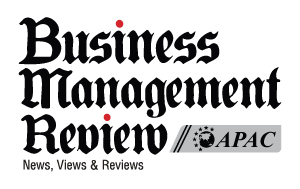Thank you for Subscribing to Business Management Review Weekly Brief
I agree We use cookies on this website to enhance your user experience. By clicking any link on this page you are giving your consent for us to set cookies. More info
Transformative Changes in Market Research and Consulting
By
Business Management Review | Thursday, February 20, 2025
The market research and consulting services industry is experiencing rapid transformations due to cutting-edge technology, evolving client expectations, and the increasing complexity of global markets. The industry is moving away from traditional methods like surveys and focus groups, opting for modern approaches incorporating advanced data analytics and the latest digital tools. These changes aim to provide clients with actionable insights and strategic guidance.
Specific technologies leading advancements in market research and consulting services include advanced data analytics platforms, machine learning algorithms, artificial intelligence tools, and natural language processing software. Additionally, tools for sentiment analysis, social media monitoring, and mobile research applications are becoming increasingly prevalent. Emerging technologies like virtual reality (VR) and augmented reality (AR) are also being explored to create immersive research environments that enhance consumer insights.
Stay ahead of the industry with exclusive feature stories on the top companies, expert insights and the latest news delivered straight to your inbox. Subscribe today.
Restructuring the industry has led to an overload of data from various sources. In addition to traditional market research data, consultancies utilize vast information from social media activity, online behavior patterns, customer relationship management (CRM) systems, and the ever-expanding Internet of Things. This explosion of data presents both a tremendous opportunity and a significant challenge.
The opportunity lies in gaining deeper, more granular insights into consumer preferences, emerging market trends, and competitive activities. However, the challenge is accurately analyzing and interpreting this data to extract actionable and relevant intelligence. As a result, data analytics capabilities have become essential for market research and consulting firms. Consultants are increasingly skilled at employing statistical modeling, machine learning algorithms, and artificial intelligence to uncover hidden patterns, predict future trends, and provide their clients with recommendations based on genuine insights.
The trade-off between excessive and insufficient market research hampers traditional studies. Clients want faster, agile solutions to adapt to rapid market changes. Agile methodologies focus on iterative data collection for timely insights, with consultants tailoring research to meet specific client needs.
A fundamental and strategic overhaul has occurred within the market research and consulting industry. Online surveys, mobile research methods, and social media analytics are becoming increasingly common. Many organizations have successfully utilized innovative methodologies in market research by incorporating advanced technologies. For instance, some have adopted artificial intelligence and machine learning to analyze real-time consumer feedback from social media, enabling quicker adjustments to marketing strategies based on emerging sentiments. Others have embraced agile research approaches, conducting rapid online surveys and mobile research to gather insights on new product ideas, allowing for swift iterations without the delays associated with traditional research. Additionally, virtual reality environments have provided immersive testing opportunities, helping organizations understand consumer reactions to products before their launch. These methods illustrate the effective integration of modern tools and strategies to enhance market research outcomes.
The functions of the consultant are shifting from merely providing data and analysis to strategic advising that helps clients interpret data and understand its implications for strategy development. Increasingly being viewed as trusted partners rather than third parties, consultants work closely with their clients to understand their business challenges so that fit-for-purpose solutions can be developed. This evolution takes active professionals in consulting who have strong analytical aptitude, deep business understanding, and, therefore, outstanding communication ability. They must clearly articulate and translate complex data into succinctly articulated recommendations digestible for their clients.
As much as the industry stands to benefit positively, there are also hindrances. One of the industry's most critical issues is upholding data quality with the growing data volume and complexity. Consultants should be diligent concerning the truthfulness of their data, open about the limitations of their respective data sources, and careful not to make insinuations about the limitations of data sources employed. Even as data analysts, they have got to reskill through grasping the foundations of digital tools, analytics, and emerging methodologies.
Consultants balance the need for rapid insights with data quality by prioritizing key metrics and leveraging advanced analytics tools for efficient processing. They often adopt an iterative analysis approach, quickly generating and refining initial findings over time. Collaborative platforms enhance team communication, enabling quicker feedback and adjustments to data strategies. Conducting pilot tests helps fine-tune methodologies before full implementation, and ongoing training ensures teams maintain best practices in data analysis. This multifaceted approach allows for timely insights without compromising data integrity.
More in News






